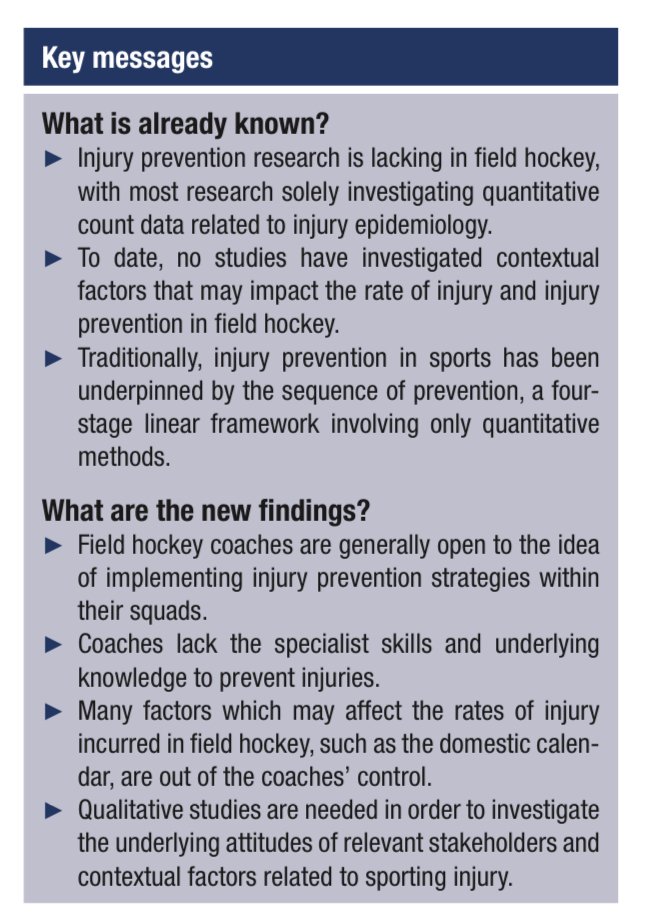Injury prevention/ management in Irish sport
If you are involved in sports, injury is something that is seen on a regular basis, it is part of the game, whether it’s just a common minor niggle or something more serious. The question is
How do coaches and athletes approach injury prevention/management here in Ireland both at club and elite level?
Do parents/guardian’s of minors have a role to play?
Is there enough education in this field?
What protocols are in place?
What coping strategies are in place to support injured athletes?
Injury is something that nobody likes to see, and with both physical and psychological components, dealing with it can be quite complex.
From an athletes perspective it can be difficult to
Take ownership and accept their injury
Train appropriately around the injury
To seek professional help and be an active member in their own healing (this seems to differ between professional and amateur sport)
Stay positive
Get the right kind of support from those around them
Set appropriate and achievable goals
Give the appropriate amount of time before returning to pre-injury level of training
Be patient
I have spoken to multiple coaches from different sports, and the consensus is that depending on the level of the injury, the protocol is as follows
the athlete must see a physio to get injury assessed (this is not always the case at amateur level)
the athlete is allowed to train where appropriate, and they can tailor their training around the injury, so they definitely aren’t training at their normal pre-injury level.
At professional level, the athlete is not allowed to train unless they have been given the all clear to do so from physio, this seems to be a lot looser in amateur sport
Most of the coaches have stated that education is key and that support on their behalf is an important factor , but more education in this field, and athletes active involvement is needed.
Below is a research paper on coaches’ attitudes to injury and injury prevention: a qualitative study of Irish field hockey coaches ..
read full article here
https://bmjopensem.bmj.com/content/bmjosem/7/3/e001074.full.pdf
The coach/athlete relationship is an important factor to highlight. Some coaches that have given feedback state that the Athletes health and well-being should be something that is discussed regularly and a relationship with honesty and trust between coach and athlete is key to
Development
Competitive performance
Injury prevention
Not burning out
Having these discussions from early on and monitoring the athletes behavioural patterns is an important part of educating them in the relationship between their wellbeing and performance, and the importance that
sleep
nutrition
stress management
movement/recovery training
have in injury prevention and their overall performance.
When it comes to parents/gaurdians, this is often seen as a delicate subject and I can only supply information from a coaches perspective as no parents/gaurdians contacted me with their opinion on the matter. Most coaches state that in some cases (not all) parents/gaurdians can be a contributing factor to delayed healing times of injuries, as minors are returning to full level of training too soon after injury. The consensus is that more education in this field is needed for both adults and kids at a level that is easily understood.
After asking many athletes what is the most difficult part about being injured, the majority stated the emotional component was worse than the physical with feelings of
Frustration
Anger
Sadness
Stress
Loss of confidence
Feeling alone
Depression
Fear of getting re-injured
Mental health around injuries seems to be a real problem and is something that needs to be taken into consideration.. the consensus is that more information and education is definitely needed.
In summary, more education on injury prevention/management and mental health around it is required across the board here in Ireland. I have spoken to some great coaches, some with amazing knowledge in this field, and doing amazing work in educating those around them, and looking after their athletes wellbeing , but we still have a long way to go, and education is key.
Some extra reading
Below is a research paper on The Effect of Sleep Quality and Quantity on Athlete's Health and Perceived Training Quality
https://www.frontiersin.org/articles/10.3389/fspor.2021.705650/full
Research on recovery from injury in sport
https://www.ncbi.nlm.nih.gov/pmc/articles/PMC3445177/

